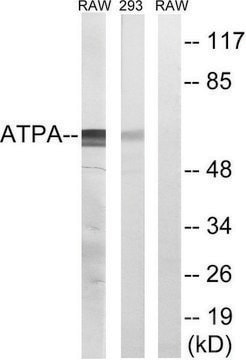PHG0007
MOPS
Fabrication pharma
Synonyme(s) :
Acide 3-(N-morpholino)propanesulfonique, Acide 4-morpholinopropanesulfonique
About This Item
Produits recommandés
Source biologique
synthetic
Niveau de qualité
Pureté
≥99.5%
Forme
powder
Technique(s)
cell culture | mammalian: suitable
Impuretés
Endotoxin, microbial, and trace metals; tested
pH
2.5-4 (1 M in H2O)
Plage de pH utile
6.5-7.9
pKa (25 °C)
7.2
λ
1 M in H2O
Adéquation
suitable for manufacturing use
Activité étrangère
Cytotoxicity, DNase, NICKase, RNase, and Protease; tested
Chaîne SMILES
OS(=O)(=O)CCCN1CCOCC1
InChI
1S/C7H15NO4S/c9-13(10,11)7-1-2-8-3-5-12-6-4-8/h1-7H2,(H,9,10,11)
Clé InChI
DVLFYONBTKHTER-UHFFFAOYSA-N
Vous recherchez des produits similaires ? Visite Guide de comparaison des produits
Description générale
M-Clarity Program
Buffer quality is vital for the success of biopharmaceutical processes, because buffers are indispensable in nearly every production step.
Our broad portfolio of buffer materials manufactured under appropriate controls is tailored to your needs. Ranging from non-GMP grades for low-risk application, to IPEC-PQG GMP for higher-risk applications, we have products covering all your manufacturing needs.
Application
MOPS is used in cell culture media, biopharmaceutical buffer formulations (both upstream and downstream). MOPS based buffers are used in purification bioprocesses of antibodies, peptides, proteins and blood components.
Informations légales
Remplacé(e)(s) par
Code de la classe de stockage
11 - Combustible Solids
Classe de danger pour l'eau (WGK)
WGK 1
Point d'éclair (°F)
230.0 °F - closed cup
Point d'éclair (°C)
110 °C - closed cup
Certificats d'analyse (COA)
Recherchez un Certificats d'analyse (COA) en saisissant le numéro de lot du produit. Les numéros de lot figurent sur l'étiquette du produit après les mots "Lot" ou "Batch".
Déjà en possession de ce produit ?
Retrouvez la documentation relative aux produits que vous avez récemment achetés dans la Bibliothèque de documents.
Les clients ont également consulté
Notre équipe de scientifiques dispose d'une expérience dans tous les secteurs de la recherche, notamment en sciences de la vie, science des matériaux, synthèse chimique, chromatographie, analyse et dans de nombreux autres domaines..
Contacter notre Service technique







